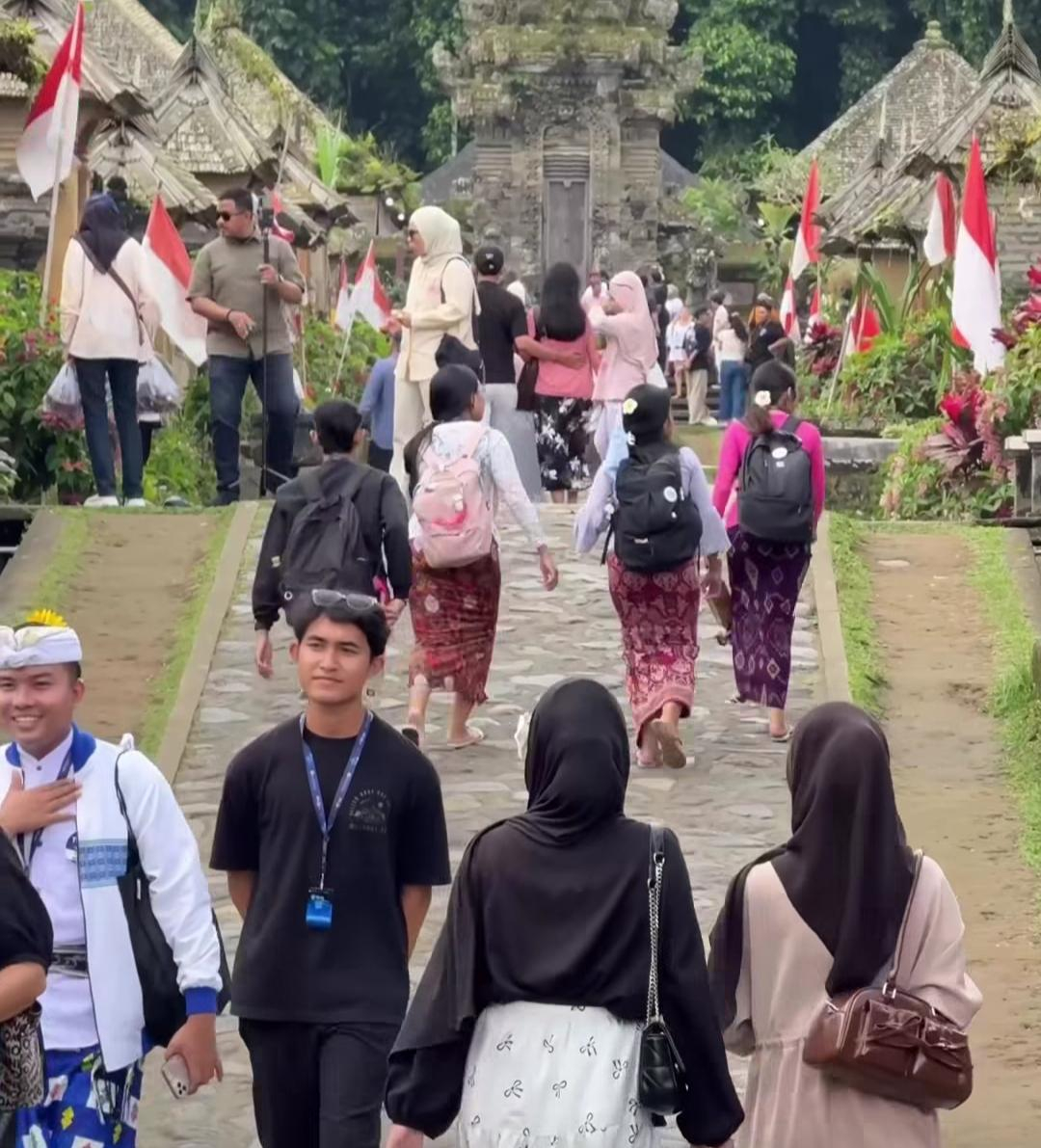Published: 06:34 PM, 18 October 2025
The Enchanted Cleanliness of Penglipuran: A Harmonious Hindu Village in Bali

Sangram Datta: Tucked away in Bali’s Bangli Regency, Penglipuran Village is more than just a picturesque hamlet—it is a living testament to the enduring spirit of Balinese Hindu culture, environmental harmony, and communal discipline. Frequently hailed among the cleanest villages globally, this settlement combines tradition with ecological mindfulness in ways that feel almost magical.
Origins & Recognition:
Penglipuran has been inhabited for centuries, with historians linking its roots to the people from Bayung Gede, who were renowned in the Bangli Kingdom for their religious and social acumen. The village name itself may derive from pengeling pura (remembering the temple/ancestral place) or pelipur lipur (comforting the unhappy).
In 2023, Penglipuran was honored as one of the UNWTO Best Tourism Villages, among 54 villages worldwide. This global recognition underscored its reputation as a model of sustainable tourism rooted in cultural preservation.
Earlier accolades include the Kalpataru Award (1995) for environmental stewardship and Indonesia’s Sustainable Tourism Award (ISTA) in 2017.
Layout, Hindu Philosophy & Daily Ethos:
Architecture & Spatial Harmony
Penglipuran’s structural design follows Tri Mandala, a zoning concept intimately tied to Tri Hita Karana—the Balinese Hindu philosophy of harmony among God, humans, and the environment. The village is segmented into:
Utama Mandala: the sacred zone with temples
Madya Mandala: residential zone
Nista Mandala: the outer zone, including funerary spaces
Thus the built environment mirrors religious values.
All homes line a single, clean stone‑paved path, with doorways (angkul-angkul) facing the road. Most structures, including kitchens and community halls (called bale sakenem), are built using bamboo, thatch, and traditional materials.
Cleanliness & Vehicle Restriction :
No motor vehicles are allowed within the village boundaries. This rule is enforced to maintain serenity and prevent pollution. Residents actively participate in waste management, composting, and regular cleaning according to customary laws (Awig-Awig).The social discipline around cleanliness is deeply internalized.
Surrounding the village, a protected bamboo forest (some 40% of village land) serves ecological, aesthetic, and spiritual functions—acting as a green belt, water catchment, and ancestral link.
Hindu Culture, Rituals & Community Life:
Religious life is central. Temples such as Pura Desa and Pura Penataran host daily offerings and seasonal ceremonies. Cultural practices like Gamelan music, traditional dance, and ritual observances mark village life.
Residents also manage homestays, invite tourists to experience local crafts (bamboo weaving, temple offerings), and preserve their folkloric customs.
Challenges & Future Directions:
While Penglipuran exemplifies sustainable tradition, it faces pressures from tourism footfall, modernization, and infrastructure demands. The community must balance visitor access with cultural integrity.
Yet its success suggests a path forward: tradition-led tourism anchored in local stewardship. Its UNWTO inclusion (2023) and ongoing awards indicate that cultural and environmental preservation can coexist with global recognition.
Final Word: Penglipuran is more than a ‘clean village’—it is a living canvas of Hindu philosophy.




